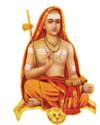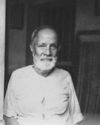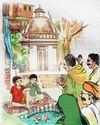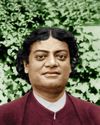Try GOLD - Free
Pariprasana
The Vedanta Kesari
|January 2022
Srimat Swami Tapasyananda Ji (1904 – 1991) was one of the Vice-Presidents of the Ramakrishna Order. His deeply convincing answers to devotees’ questions raised in spiritual retreats and in personal letters have been published in book form as Spiritual Quest: Questions & Answers. Pariprasna is a selection from this book.
-

QUESTION: There are five acts of God they say—the acts of creation (Srishti), protection (Sthiti), destruction (Samhara), concealment (Tirobhava) and grace (Anugraha). The first three and the last are understandable. But Tirobhava is ill-understood. Some explain it with an analogy like, ‘a tree concealed within its own seed’, meaning the subtle state. If that be so, is not merely ‘remaining unseen in a subtle form’ only a passive state? Or is it a dynamic act rightly to be grouped under the great works of God?
MAHARAJ: Technical expressions like Tirobhava may have different meanings in different forms of Indian theology. So it is difficult to give an explanation of it common to all systems. One system in which it plays a very crucial part is Vallabha’s system of Suddhadvaita. How the non-dual Satchidananda has become the many has to be explained by Vedantic schools. Sankara’s system does it by his doctrine of ignorance and superimposition under the aegis of an indeterminate category called Maya. Vallabha has no use for Maya except as the power of God, in which case it is one with Him and not an indeterminate category. So he gets the many, i.e., the Jiva and the Jagat, out of the non-dual Satchidananda by the Tirobhava doctrine. The following quotation from p. 159 of Vedanta Kesari, May 1979 on the subject will explain the doctrine:
This story is from the January 2022 edition of The Vedanta Kesari.
Subscribe to Magzter GOLD to access thousands of curated premium stories, and 10,000+ magazines and newspapers.
Already a subscriber? Sign In
MORE STORIES FROM The Vedanta Kesari

The Vedanta Kesari
Panchakroshi Parikrama of Varanasi
At the snow-capped Kailas, the Divine Lord Shiva was seated with Mother Parvati.
5 mins
February 2023

The Vedanta Kesari
Gadai and the Monks
A fictional narrative based on incidents from the childhood of Sri Ramakrishna.
2 mins
February 2023

The Vedanta Kesari
Chintayo momo maanosho Hori...
Sri Ramakrishna loved songs. There probably was no normal day when he did not sing some songs.
4 mins
February 2023

The Vedanta Kesari
The Vedanta Vaccine
The world is still struggling under the impact of the pandemic due to Covid-19 for the last three years.
5 mins
February 2023

The Vedanta Kesari
Chandrakirti's Chariot: Self in Madhyamaka Buddhism and Advaita Vedanta
The goal in Advaita Vedanta is the cessation of suffering and the attainment of true fulfillment. Suffering, according to this school, is due to ignorance of the true nature of the self and consequent erroneous identification with the body-mind.
13 mins
February 2023

The Vedanta Kesari
Reminiscences of Sargachhi
Question: यद्यदाचरतत श्रेष्ठसतत्तदरेवरेतरो जनिः। ‘Whatever a superior person does, others do the same thing!’ (Gita 3:21) – What does this statement mean?
6 mins
February 2023

The Vedanta Kesari
THE AUTUMN FESTIVAL
A fictional narrative based on incidents from the childhood of Sri Ramakrishna.
2 mins
October 2022

The Vedanta Kesari
Bards of Guruvayur: Vilwamangalam II
Saints of India
12 mins
October 2022

The Vedanta Kesari
In the Universal Mother’s Divine Playground
Swami Vivekananda never taught the worship of Mother Kali. In a letter to Mary Hale he writes, “Kali worship is not a necessary step in any religion.
11 mins
October 2022

The Vedanta Kesari
Swami Vivekananda: A Sportsman Par Excellence
In various books and articles, Swami Vivekananda has been called a spiritual leader, a prophet, a patriot, a social reformer, a philosopher, a yogi, a writer, an orator, an educationist, a musician, and so on.
6 mins
October 2022
Translate
Change font size

